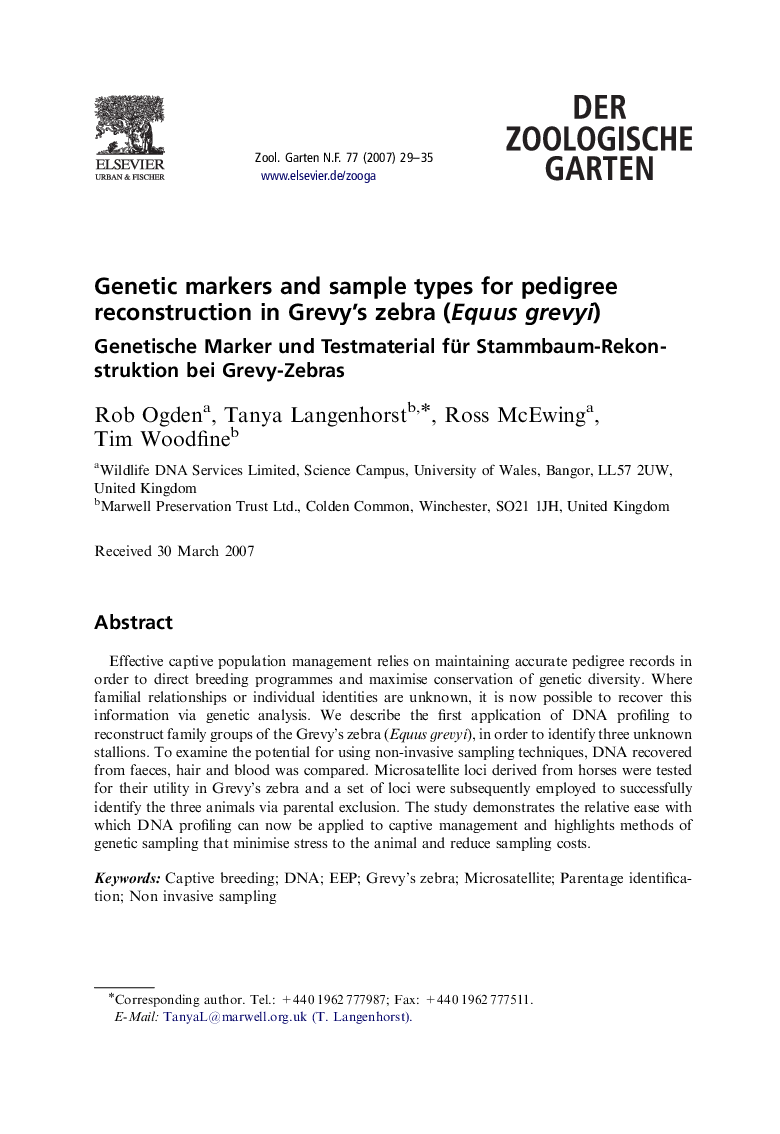| Article ID | Journal | Published Year | Pages | File Type |
|---|---|---|---|---|
| 2473128 | Der Zoologische Garten | 2007 | 7 Pages |
Effective captive population management relies on maintaining accurate pedigree records in order to direct breeding programmes and maximise conservation of genetic diversity. Where familial relationships or individual identities are unknown, it is now possible to recover this information via genetic analysis. We describe the first application of DNA profiling to reconstruct family groups of the Grevy's zebra (Equus grevyi), in order to identify three unknown stallions. To examine the potential for using non-invasive sampling techniques, DNA recovered from faeces, hair and blood was compared. Microsatellite loci derived from horses were tested for their utility in Grevy's zebra and a set of loci were subsequently employed to successfully identify the three animals via parental exclusion. The study demonstrates the relative ease with which DNA profiling can now be applied to captive management and highlights methods of genetic sampling that minimise stress to the animal and reduce sampling costs.
ZusammenfassungErfolgreiches Management von Populationen in Menschenhand ist abhängig von genauen Zuchtbuchdaten. Für Zuchtprogramme, in denen Familienbeziehungen und individuelle Identität unbekannt sind, ist es jetzt möglich, diese Informationen über genetische Analysen wieder zu finden.Um 3 unbekannte Grevy-Zebrahengste zu identifizieren, wird erstmals die Fingerprinting-Methode bei Grevyzebras beschrieben und gezeigt, dass die nichtinvasiven Probenahmen, bei Verwendung von Kot, Haaren und Blut, relativ einfach, annähernd stressfrei und kostengünstig sind.
